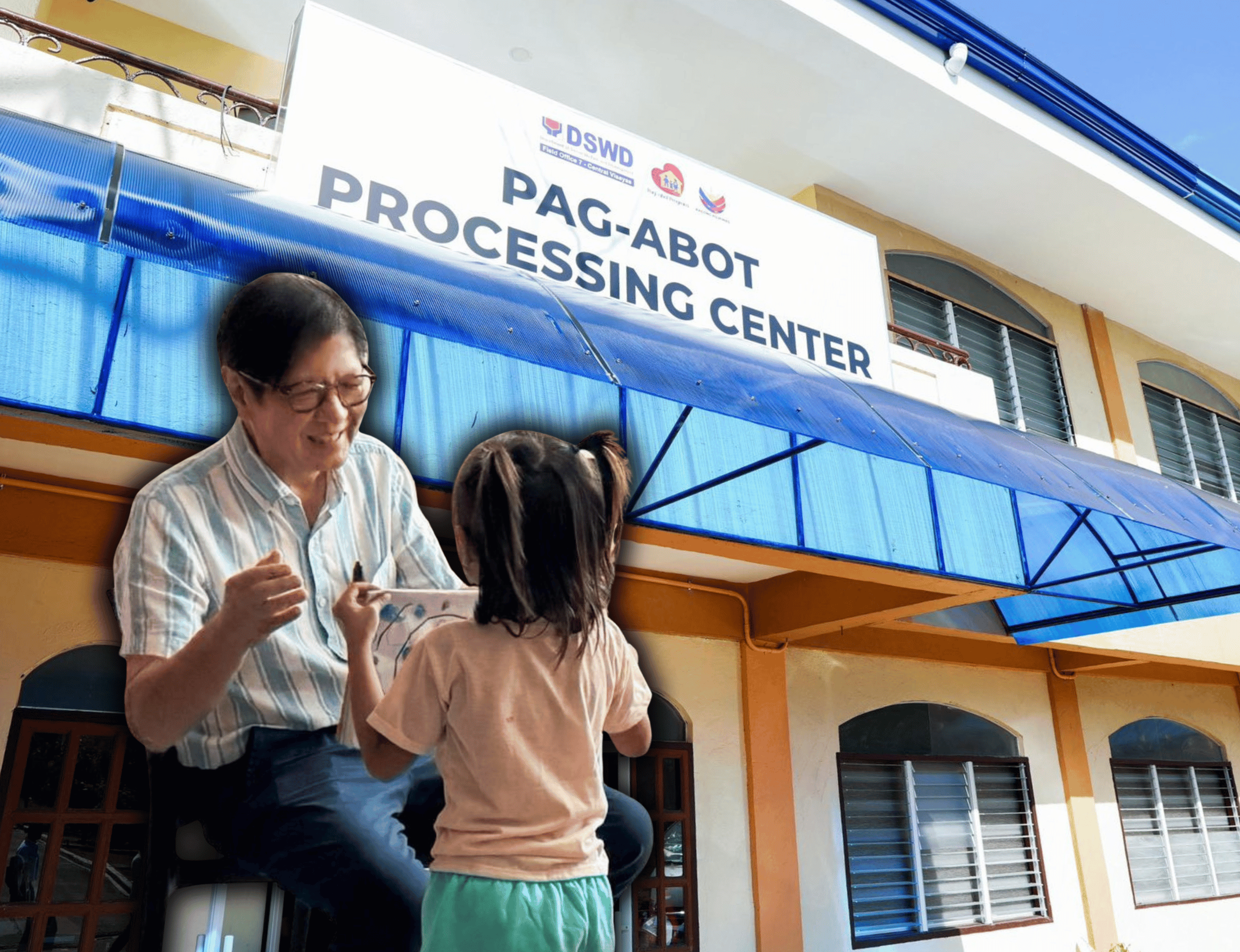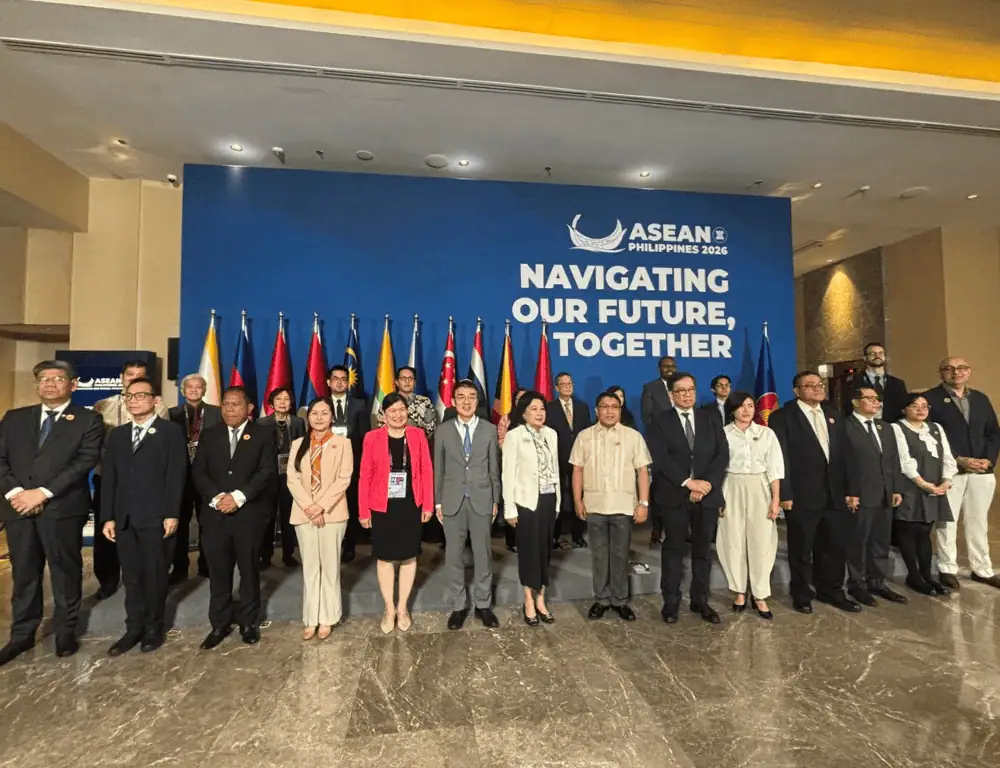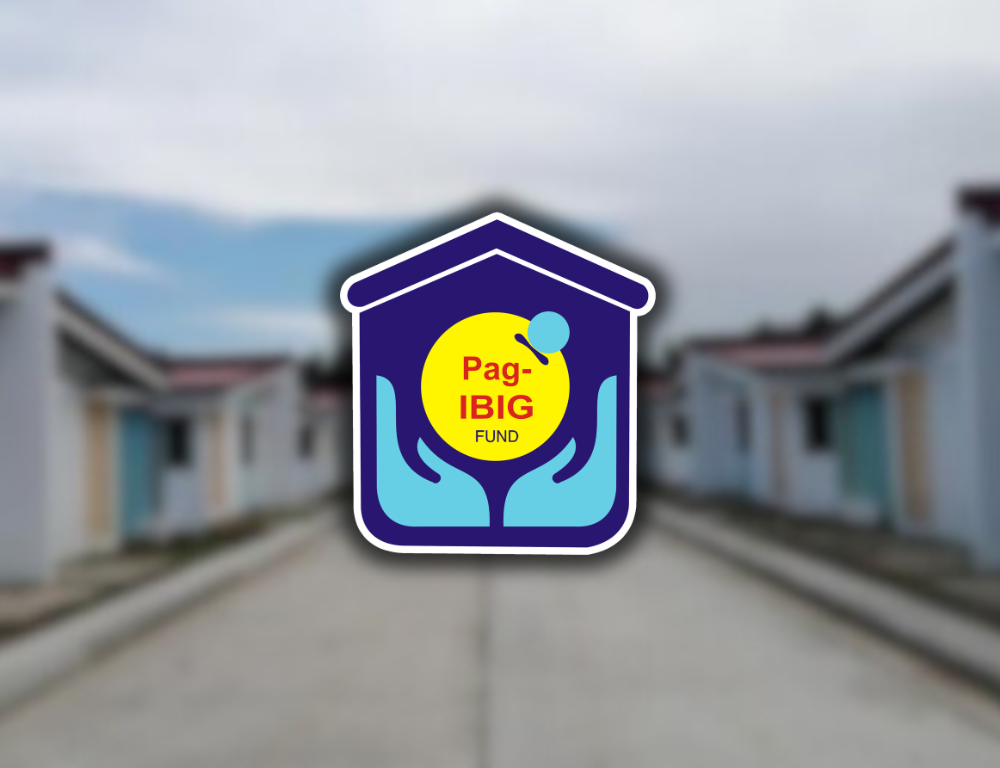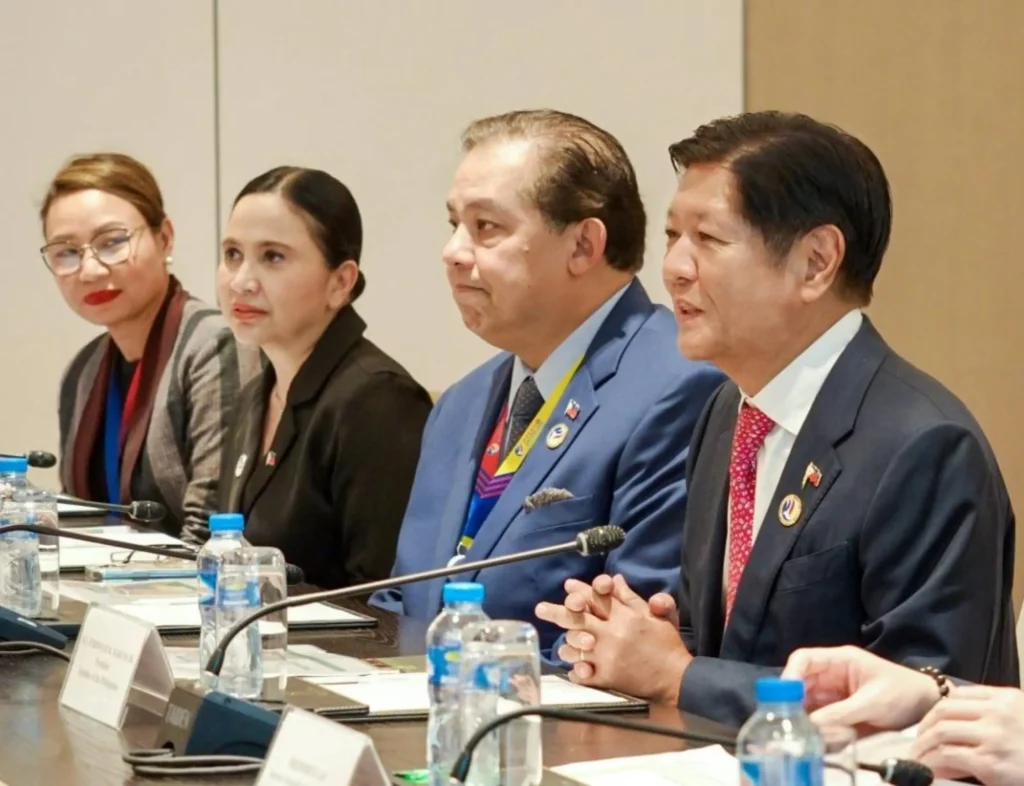
Agriculture has been a top priority of President Ferdinand R. Marcos Jr. since he took office in 2021. Recognizing the pressing need for transformative action in the agricultural sector, he undertook the significant responsibility of leading the Department of Agriculture (DA) for a time, aiming to implement bold and impactful changes for the sector.
“As to agriculture, I think the problem is severe enough that I have decided to take on the portfolio of Secretary of Agriculture at least for now. We’re going back to basics, and we will rebuild the value chain of agriculture. That is why I though it is important that the President take that portfolio so that not only to make it clear to everyone what a high priority we put on the agricultural sector, but also as a practical matter so that things move quickly, because the events of the global economy are moving very quickly,” President Marcos said when he assumed the DA post in 2022.
PBBM has since relinquished the DA post to Francis Tiu Laurel, but his commitment to uplifting agriculture remains strong as ever. He emphasized this unflinching dedication in third State of the Nation (SONA) address, where he reiterated his administration’s goals for this vital sector.
“Mga kababayan, sa lahat ng ginagawa nating ito at mga gagawin pa, mataas ang aking kumpiyansa na malalampasan din natin ang hamon na ating pinagdadaanan. Dahil ito ang pangunahing hinaing ng taumbayan, hindi tayo titigil sa paglalaban sa kahirapan…,” President Marcos said. “Lokal na produksyon pa rin ang ating mas bibigyan ng halaga. Kaya patuloy nating sinusuportahan ang sektor ng agrikultura upang mapabilis, mapadali, at mapalakas ang produksyon—mula sa pagpunla, pag-ani at paghuli, hanggang sa pagbiyahe at pagbenta—at upang maiwasan din ang pagkasira ng mga produkto…”
The president, in his bid to realize his vision for agriculture, has called on the different government agencies to support and help the DA uplift the agricultural industry to help its various stakeholders—farmers, in particular—and contribute to ensuring a food-secure, economically vibrant future for the Philippines.
Promoting Sustainable Growth and Innovation Through RAPID Growth
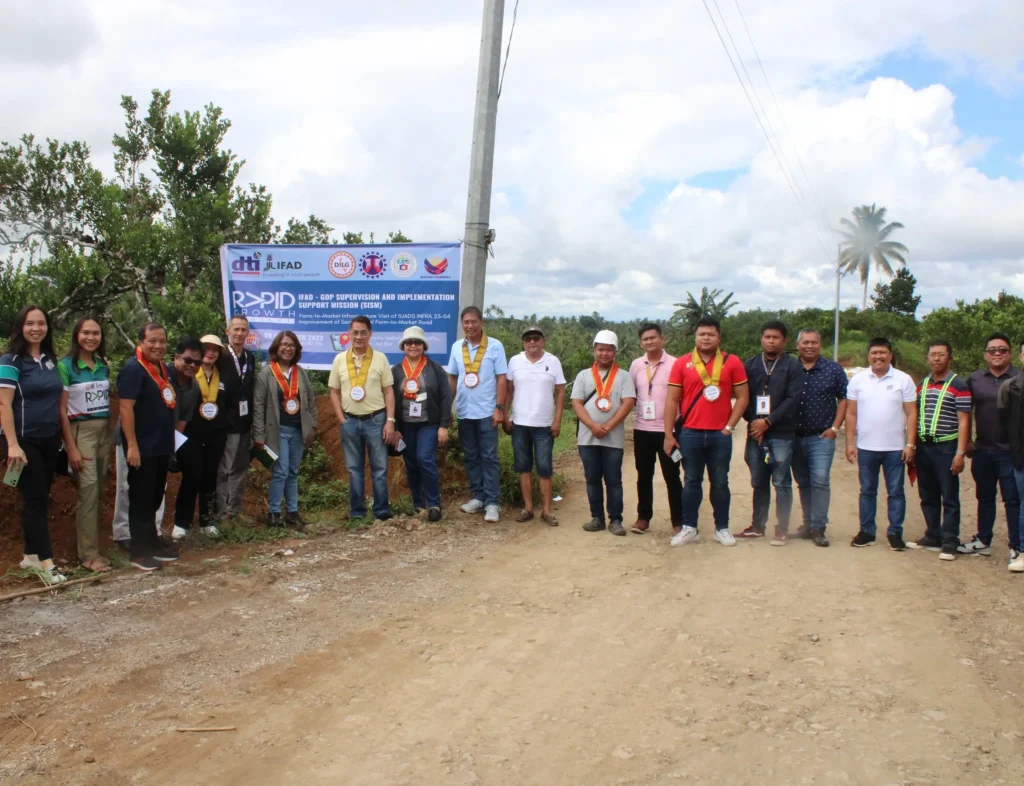
The Department of Trade and Industry is among the agencies taking a leading role in helping grow the country’s agriculture sector with ambitious projects like the Rural Agro- enterprise Partnership for Inclusive Development and Growth (RAPID Growth). Officially launched on May 24, 2019, the ₱4.7 billion RAPID Growth project is a value chain-based project that aims to forge strategic partnerships among small farmers, rural entrepreneurs, and other stakeholders in the coffee, cacao, coconut, and processed fruits and nuts sectors. Its ultimate goals are to empower more micro, small, and medium enterprises
(MSMEs) with the tools and skills necessary for sustained growth and foster a more enabling business environment across the regions supported by the project.
With RAPID Growth, the government seeks to address major endemic problems like rural poverty and unemployment by building partnerships between MSMEs and farming communities to produce globally competitive products. It is specifically designed to help agriculture-based rural communities become innovative, productive, and competitive through linkages between and among farmers, MSMEs, and corporations and thru other market interventions such as access to raw materials, technological assistance, and entry to diverse markets.
“RAPID Growth project goes to the heart of what we are doing at DTI: linking farmers and businesses. And by promoting the microenterprises or those in the bottom of the pyramid, we are empowering the nation,” said then DTI Secretary Ramon M. Lopez during the launch of RAPID Growth at the IFEX Philippines NXTFOOD ASIA held on 24 May 2019 at the World Trade Center in Pasay City.
Established under the DTI’s Resource Generation and Management Service (DTI – RGMS) and funded by the International Fund for Agricultural Development (IFAD), RAPID Growth focuses on the agricultural value chains of cocoa, coffee, processed fruits and nuts, and coconut and was implemented in 21 target provinces in Regions 8–13 and BARMM. The project has five components, namely: (1) direct assistance to enterprises;
(2) institutional strengthening; (3) technical assistance to financial service providers; (4) innovation fund; and (5) management, monitoring; and evaluation.
“To boost the rural economy and reduce poverty in rural areas, it is important that agribusiness enterprises drive a process of inclusive rural transformation, creating market opportunities for smallholder farmers as well as jobs for other disadvantaged rural people,” explained IFAD Country Director for the Philippines Alessandro Marini during the launch of RAPID Growth in 2019 .
Success Begets Success: The Story of BARBCO in Davao
The Biao Agrarian Reform Beneficiaries Cooperative (BARBCO) is doing exactly that— creating market opportunities and facilitating inclusive rural transformation—with the help of RAPID Growth. The Davao-based cooperative had been doing well under the guidance of Guadalupe “Aging” Ocial, who was chosen by the BARBCO Board as one of the cooperative’s pillars. But Ocial and BARBCO’s Board of Directors wanted to scale up production to take the cooperative to the next level and, in the process, improve the lives of its farmer-members.
DTI-IFAD’s RAPID Growth project is helping grow BARBCO’s business potential with various assistance packages, primarily the provision of four mechanical dryers. Each of these machines can dry up to 500 kilograms of beans, and together they can increase the cooperative’s absorbing capacity exponentially, even during rainy season.
“The dryers were a big help to our enterprise, especially since our outlays for such equipment are hefty. The quality of our beans has also become better, especially on rainy days,” said Godofredo Rangas, Chair of BARBCO’s Board of Directors.
With BARBCO slowly but surely fulfilling its immense business potential, it is now giving back even more to the community, again with the help of RAPID Growth. For instance, BARBCO has been assisting Davao’s SAWATA Farmers’ Organization since they got introduced in a RAPID Growth-organized training program on cacao production, processing, and marketing. BARBCO is now also helping out smaller cooperatives in the Davao Region, like the Southern Davao Multipurpose Cooperative and UNICARBI Multipurpose Cooperative, by providing them seedlings and buying beans from them.
A Continuing Project for Sustained Success and Growth
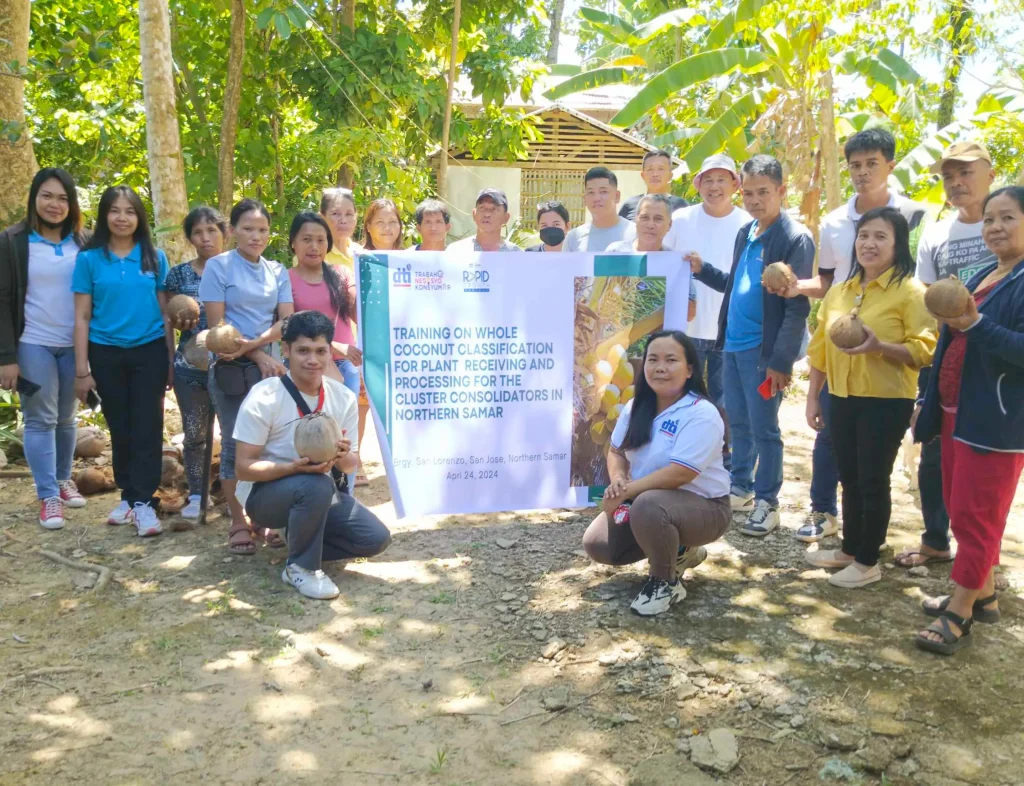
Farmers of six RAPID Growth-assisted MSMEs and Farmer Organizations in SOCCSKSARGEN are also reaping the benefits of partnering with the DTI. In 2023, for instance, the six DTI partners—Kalamansig Farmers Agricultural Development and Marketing Association, Keytodac Coffee Growers Inc. (KCGI), Villamonte Coffee Growers Association Inc., Greentropics Enterprise, and Kalamansig Coffee Federation—recorded 12 million in coffee sales in the Manila Coffee Festival alone, apart from partaking in relevant workshops, trainings, and market-matching sessions. The goal, ultimately, is for the partners to keep building on these initial successes and to replicate it for other MSMEs, cooperatives, and small-scale farmers nationwide.
The project, which has met considerable challenges since its inception in 2019, is nonetheless achieving measures of success one partner at a time, one farmer at a time. In fact, no less than the Philippine Institute for Development Studies acknowledged the significant strides the project has made through the years—particularly in “capacitating and empowering farmer organizations toward rural development.” To be clear, much work lies ahead for the DTI and its RAPID Growth project, with plenty of room for improvement and areas to work on.
But the project is working—and with President Marcos himself committing to uplifting the agriculture sector and empowering small businesses, the DTI will not stop in its quest to boost rural economies through key agricultural commodities. With the RAPID Growth project, the government will continue to support and strengthen rural enterprises, create a sustainable foundation for growth, improve the business environment for MSMEs, and enhance the quality of life of millions of Filipinos.
This, ultimately, is what growth is all about.






